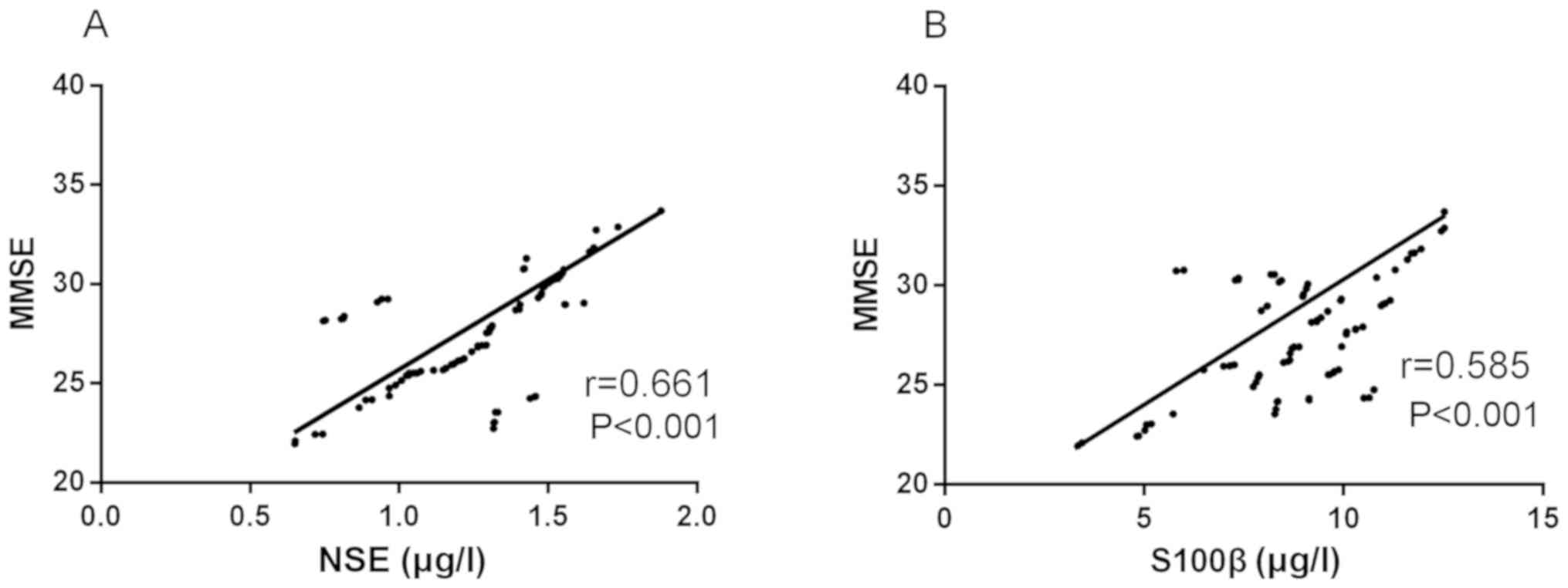|
1
|
Zhang Y, Zheng T and Zhang W: Report of
cancer incidence and mortality in China, 2012. Adv Mod Oncol Res.
4:1–7. 2018.
|
|
2
|
Torre LA, Siegel RL and Jemal A: Lung
cancer statistics. In: Lung Cancer and Personalized Medicine.
Springer, Cham. Adv Exp Med Biol. 893:1–19. 2016. View Article : Google Scholar : PubMed/NCBI
|
|
3
|
Jiang L, Hu M, Lu Y, Cao Y, Chang Y and
Dai Z: The protective effects of dexmedetomidine on ischemic brain
injury: A meta-analysis. J Clin Anesth. 40:25–32. 2017. View Article : Google Scholar : PubMed/NCBI
|
|
4
|
Hudetz JA, Patterson KM, Iqbal Z, Gandhi
SD and Pagel PS: Remote ischemic preconditioning prevents
deterioration of short-term postoperative cognitive function after
cardiac surgery using cardiopulmonary bypass: Results of a pilot
investigation. J Cardiothorac Vasc Anesth. 29:382–388. 2015.
View Article : Google Scholar : PubMed/NCBI
|
|
5
|
Müller A, Lachmann G, Wolf A, Mörgeli R,
Weiss B and Spies C: Peri- and postoperative cognitive and
consecutive functional problems of elderly patients. Curr Opin Crit
Care. 22:406–411. 2016. View Article : Google Scholar : PubMed/NCBI
|
|
6
|
Brown CH IV, Laflam A, Max L, Lymar D,
Neufeld KJ, Tian J, Shah AS, Whitman GJ and Hogue CW: The impact of
delirium after cardiac surgical procedures on postoperative
resource use. Ann Thorac Surg. 101:1663–1669. 2016. View Article : Google Scholar : PubMed/NCBI
|
|
7
|
Monk TG, Saini V, Weldon BC and Sigl JC:
Anesthetic management and one-year mortality after noncardiac
surgery. Anesth Analg. 100:4–10. 2005. View Article : Google Scholar : PubMed/NCBI
|
|
8
|
Li A, Yuen VM, Goulay-Dufay S and Kwok PC:
Pharmacokinetics and pharmacodynamics of dexmedetomidine. Drug Dev
Ind Pharm. 42:1917–1927. 2016. View Article : Google Scholar : PubMed/NCBI
|
|
9
|
Bloor BC, Ward DS, Belleville JP and Maze
M: Effects of intravenous dexmedetomidine in humans. II.
Hemodynamic changes. Anesthesiology. 77:1134–1142. 1992. View Article : Google Scholar : PubMed/NCBI
|
|
10
|
Gertler R, Brown HC, Mitchell DH and
Silvius EN: Dexmedetomidine: A novel sedative-analgesic agent. Proc
Bayl Univ Med Cent. 14:13–21. 2001. View Article : Google Scholar : PubMed/NCBI
|
|
11
|
Tanskanen PE, Kyttä JV, Randell TT and
Aantaa RE: Dexmedetomidine as an anaesthetic adjuvant in patients
undergoing intracranial tumour surgery: A double-blind, randomized
and placebo-controlled study. Br J Anaesth. 97:658–665. 2006.
View Article : Google Scholar : PubMed/NCBI
|
|
12
|
Bekker A, Sturaitis M, Bloom M, Moric M,
Golfinos J, Parker E, Babu R and Pitti A: The effect of
dexmedetomidine on perioperative hemodynamics in patients
undergoing craniotomy. Anesth Analg. 107:1340–1347. 2008.
View Article : Google Scholar : PubMed/NCBI
|
|
13
|
Yao ZY, Jia Z, Xie YH, Zhang LL, Zhang HS,
Wu WQ, Zhang CK and Gan LJ: Analgesic effect of dezocine in
different doses on elderly patients undergoing abdominal operation
under general anesthesia and its influence on stress response to
postoperative tracheal extubation. Eur Rev Med Pharmacol Sci.
21:5223–5229. 2017.PubMed/NCBI
|
|
14
|
Kunnimalaiyaan S, Sokolowski KM,
Balamurugan M, Gamblin TC and Kunnimalaiyaan M: Xanthohumol
inhibits Notch signaling and induces apoptosis in hepatocellular
carcinoma. PLoS One. 10:e01274642015. View Article : Google Scholar : PubMed/NCBI
|
|
15
|
Rajan S, Moorthy S, Paul J and Kumar L:
Effect of dexmedetomidine on postoperative hemodynamics and outcome
of free flaps in head and neck reconstructive surgeries. Open
Anesthesiol J. 10:102016. View Article : Google Scholar
|
|
16
|
Rajan S, Hutcherson MT, Sessler DI, Kurz
A, Yang D, Ghobrial M, Liu J and Avitsian R: The effects of
dexmedetomidine and remifentanil on hemodynamic stability and
analgesic requirement after craniotomy: a randomized controlled
trial. J Neurosurg Anesthesiol. 28:282–290. 2016. View Article : Google Scholar : PubMed/NCBI
|
|
17
|
Isgrò MA, Bottoni P and Scatena R:
Neuron-specific enolase as a biomarker: Biochemical and clinical
aspects. In: Advances in Cancer Biomarkers. Scatena R (ed).
Springer, Dordrecht. Adv Exp Med Biol. 867:125–143. 2015.
View Article : Google Scholar : PubMed/NCBI
|
|
18
|
Haque A, Ray SK, Cox A and Banik NL:
Neuron specific enolase: A promising therapeutic target in acute
spinal cord injury. Metab Brain Dis. 31:487–495. 2016. View Article : Google Scholar : PubMed/NCBI
|
|
19
|
Donato R, Sorci G, Riuzzi F, Arcuri C,
Bianchi R, Brozzi F, Tubaro C and Giambanco I: S100B's double life:
Intracellular regulator and extracellular signal. Biochim Biophys
Acta. 1793:1008–1022. 2009. View Article : Google Scholar : PubMed/NCBI
|
|
20
|
Yokobori S, Hosein K, Burks S, Sharma I,
Gajavelli S and Bullock R: Biomarkers for the clinical differential
diagnosis in traumatic brain injury - a systematic review. CNS
Neurosci Ther. 19:556–565. 2013. View Article : Google Scholar : PubMed/NCBI
|
|
21
|
Zhang Y, Junfang MA and Meng Y: Changes of
serum neuron specific enolase and S100-β protein and their
correlations with cognitive impairment in patients with moderate
traumatic brain injury. Chin J Traumatol. 33:886–889. 2017.
|
|
22
|
Chaves ML, Camozzato AL, Ferreira ED,
Piazenski I, Kochhann R, Dall'Igna O, Mazzini GS, Souza DO and
Portela LV: Serum levels of S100B and NSE proteins in Alzheimer's
disease patients. J Neuroinflammation. 27:762010.
|















